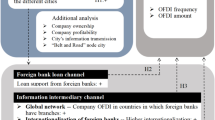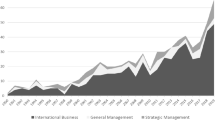Abstract
Telecommunications has entered a new age of development with advanced technology and increased competition with established players. The main focus of telecom operators is to maintain and increase their market shares by creating a loyal customer base and technology advancements. However, it remains difficult for telecom operators to evaluate their performance and competence within a fast-changing environment, especially since the telecom business is complex and involves unknown trade-offs. The current study proposes a series of methods in order to evaluate the performance of telecommunication companies, using as a case study the Hellenic Telecommunications Organization (OTE). OTE’s importance lies on its role as one of the leading companies in Greece affecting the economy. On the methodological side, this paper applies the linear regression analysis to measure and evaluate the performance of OTE. The results show that during the period 2005-2015 there are events which affect the operation of OTE and create conditions for cost optimization which are of great importance and they determine the future evolution of the organization. The results of this study are expected to be utilized as guidelines for the telecom operators as well as for regulators and decision makers in general.
Similar content being viewed by others
References
Athanassopoulos, A.D., & Giokas, D. (1998). Technical efficiency and economies of scale in state owned enterprises: the Hellenic telecommunications organisation. European Journal of Operational Research, 107(1), 62–75. https://doi.org/10.1016/S0377-2217(97)00095-7.
Cobb, C.W., & Douglas, P.H. (1928). American economic association. Source: The American Economic Review, 18(1), 139–165.
Cronin, F.J., Parker, E.B., Colleran, E.K., & Gold, M.a. (1991). Telecommunications infrastructure and economic growth. Telecommunications Policy, 15(6), 529–535. https://doi.org/10.1016/0308-5961(91)90007-X.
Datta, A., & Agarwal, S. (2004). Telecommunications and economic growth: a panel data approach. Applied Economics, 36(15), 1649–1654. https://doi.org/10.1080/0003684042000218552.
Diskaya, F., Emir, S., & Orhan, N. (2011). Measuring the technical efficiency of telecommunication sector within global crisis: comparison of G8 countries and Turkey. Procedia - Social and Behavioral Sciences, 24, 206–218. https://doi.org/10.1016/j.sbspro.2011.09.037.
Giokas, D.I., & Pentzaropoulos, G.C. (2000). Evaluating productive efficiency in telecommunications: evidence from Greece. Telecommunications Policy, 24(8–9), 781–794. https://doi.org/10.1016/S0308-5961(00)00053-7.
Halkos, G. (2011). ECONOMETRICS: theory, practice & instructions on the use of econometric programs, GUTENBERG. (in Greek).
Koutroumpis, P. (2009). The economic impact of broadband on growth: a simultaneous approach. Telecommunications Policy, 33(9), 471–485. https://doi.org/10.1016/j.telpol.2009.07.004.
Lehr, W.H., Osorio, C.A., Gillett, S.E., & Sirbu, M.A. (2006). Measuring broadband’s economic impact. https://dspace.mit.edu/bitstream/handle/1721.1/102779/esd-wp-2006-02.pdf. Access date: 25 June 2017.
Organisation for Economic Co-operation and Development (OECD). (1999). Communications outlook 1999. Paris: OECD Publication Service.
Pentzaropoulos, G.C., & Giokas, D.I. (2002). Comparing the operational efficiency of the main European telecommunications organizations: a quantitative analysis. Telecommunications Policy, 26(11), 595–606. https://doi.org/10.1016/S0308-5961(02)00059-9.
Röller, L.-H., & Waverman, L. (2001). Telecommunication infrastructure and economic development: a simultaneous approach. The American Economic Review, 91(4), 909–923. https://doi.org/10.1257/aer.91.4.909 https://doi.org/10.1257/aer.91.4.909.
Sridhar, K.S., & Sridhar, V. (2009). Telecommunications infrastructure and economic growth: evidence from developing countries. Applied Econometrics and International Development, 2, 91–116. https://doi.org/10.1016/0308-5961(91)90007-X.
Sueyoshi, T. (1994). Theory and methodology stochastic frontier production analysis: measuring performance of public telecommunications in 24 OECD countries. European Journal of Operational Research, 74, 466–478.
Sykes, A.O. (1993). An introduction to regression analysis. Coase-Sandor Institute for Law & Economics Working Paper No. 20.
Author information
Authors and Affiliations
Corresponding author
Rights and permissions
About this article
Cite this article
Laitsou, E., Kiriakidis, M., Kargas, A. et al. Economies of scale, cost minimization and productivity in telecom markets under economic crisis: evidence from Greece. Netnomics 18, 169–182 (2017). https://doi.org/10.1007/s11066-017-9121-y
Accepted:
Published:
Issue Date:
DOI: https://doi.org/10.1007/s11066-017-9121-y




